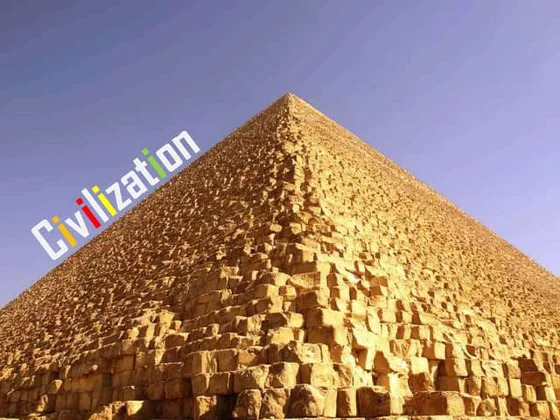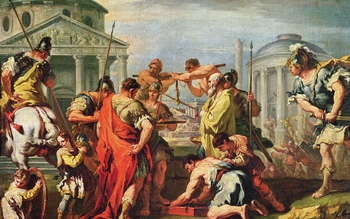
General Pedagogy and Methodology is an education-focused course that explores the foundational principles, theories, and practices of teaching and learning. The course covers the nature and aims of education, historical and philosophical perspectives, and the roles of teachers and learners in diverse educational contexts. Emphasis is placed on understanding various teaching methodologies, instructional strategies, and classroom management techniques suited to different learning environments and learner needs. It also addresses curriculum planning, assessment, and inclusive education practices, with a focus on fostering critical thinking, creativity, and learner-centered pedagogy. Through both theoretical study and practical application, the course prepares future educators to create effective, engaging, and equitable learning experiences.
Objectives:
To introduce foundational concepts and philosophies of education and pedagogy.
-
To explore the roles and responsibilities of teachers in diverse and inclusive classrooms.
-
To examine various teaching methods, instructional strategies, and learning theories.
-
To develop skills for effective lesson planning, classroom management, and student assessment.
-
To promote reflective and learner-centered teaching practices grounded in educational research and ethics.
Learning Outcomes:
Explain key pedagogical theories and educational philosophies and their impact on teaching and learning.
-
Identify and apply appropriate teaching methods for different learning contexts and learner needs.
-
Design effective lesson plans incorporating objectives, content, methodology, and assessment tools.
-
Demonstrate an understanding of inclusive education and strategies to accommodate diverse learners.
-
Apply principles of classroom management to foster a supportive and productive learning environment.
-
Reflect critically on their own teaching practices to improve instructional effectiveness and student engagement.
-
Use assessment data to inform and adjust teaching strategies to enhance student learning outcomes.
Course Code: EDG 1201
Academic Year 2024-2025
Lecturer: Daniel DUKUNDANE
E-mail: dukundanedan@gmail.com
- Teacher: content creator

This course provides a foundational understanding of how to conduct research in various academic and professional fields. It covers the principles, processes, and tools used in both qualitative and quantitative research, with a focus on ethical and effective research practices.
Objectives
By the end of the course, students should be able to:
- Understand the purpose and importance of research
- Identify and formulate research problems and questions
- Differentiate between qualitative, quantitative, and mixed methods research
- Select appropriate research designs and data collection methods
- Analyze and interpret data
- Report research findings clearly and ethically
Learning Outcomes:
- Explain what research is and why it is conducted.
- Identify and describe different research types and methodologies.
- Formulate a clear research problem, question, or hypothesis.
- Choose appropriate methods for data collection (e.g., survey, interview, observation).
- Design a basic research study using suitable methodology.
- Apply concepts of validity, reliability, and sampling in research.
- Recognize and apply ethical standards in research practices.
- Interpret research findings and present them clearly in written or oral form.
- Critically analyze existing research and assess its quality and relevance.
Key Topics
- Introduction to Research
- The Research Process
- Literature Review
- Research Design
- Sampling Techniques
- Data Collection Methods
- Data Analysis
- Ethics in Research
- Reporting Research
Course Code: IRM 1201
Academic Year 2024-2025
Lecturer: Jerome KAYEMBA
- Teacher: content creator

Description
The History of Civilizations module explores the rise, development, and impact of major civilizations across the world. This course examines how early human societies evolved into complex civilizations, highlighting their political structures, economies, religions, technological advancements, and cultural contributions. By studying ancient, medieval, and modern civilizations, learners will gain a deeper understanding of the forces that shaped human history and continue to influence the present.
Course code: HIS 3201
Course credit: 10
Pre-requisites: None
Academic year: 2024-2025
Lecturer: Samuel Ngendahimana
Course Objectives:By the end of this module, learners will be able to:
-
Understand the Concept of Civilization
- Define civilization and identify its key characteristics.
- Explain the factors that led to the emergence of early civilizations.
-
Explore the Development of Ancient Civilizations
- Analyze the political, economic, social, and cultural structures of early civilizations such as Mesopotamia, Egypt, the Indus Valley, and China.
- Examine the technological and architectural achievements of ancient societies.
-
Examine Classical Civilizations
- Understand the contributions of Greek and Roman civilizations to politics, philosophy, and the arts.
- Study the rise and fall of major classical empires such as Persia, Maurya, and Han China.
-
Analyze Medieval and Renaissance Societies
- Explore the characteristics of medieval civilizations, including feudalism, religious institutions, and cultural developments.
- Examine the impact of the Renaissance on science, art, and human thought.
-
Understand the Transformation of Early Modern Societies
- Discuss the effects of global exploration, trade expansion, and the Industrial Revolution.
- Evaluate the impact of colonialism on world civilizations.
The content of this module will cover following sections:
- Teacher: HABINSHUTI EMMANUEL

The Ancient Civilization course explores the development, achievements, and legacies of early human societies from prehistory through the fall of major classical empires. Students examine the political systems, cultural practices, religions, economies, and technological innovations of civilizations such as Mesopotamia, Egypt, the Indus Valley, China, Greece, and Rome. The course emphasizes how geography, environment, and human ingenuity shaped the rise and fall of these civilizations and contributed to the foundations of the modern world. Through comparative analysis and historical inquiry, students gain insight into the enduring influence of ancient societies on contemporary culture and global history.
Objectives:
- To introduce students to the major ancient civilizations and their historical significance.
- To examine the political, social, economic, and religious structures of ancient societies.
- To understand how geography and environment influenced the development of ancient civilizations.
- To explore the cultural achievements and contributions of early civilizations to modern society.
- To develop skills in historical analysis, critical thinking, and comparative study.
Learning Outcomes:
By the end of the course, students will be able to:
- Identify and describe key ancient civilizations and their major characteristics.
- Analyze how environmental and geographic factors shaped early human societies.
- Compare the governance, belief systems, and cultural practices across different civilizations.
- Evaluate the causes and effects of major events such as the rise and decline of civilizations.
- Demonstrate understanding of ancient civilizations through written assignments, discussions, and presentations.
Academic Year 2024-2025
Lecturer: Jesse NANYUMBA
E-mail: jessenayumba@gmail.com
Tel: +250 787 187 572
- Teacher: content creator

